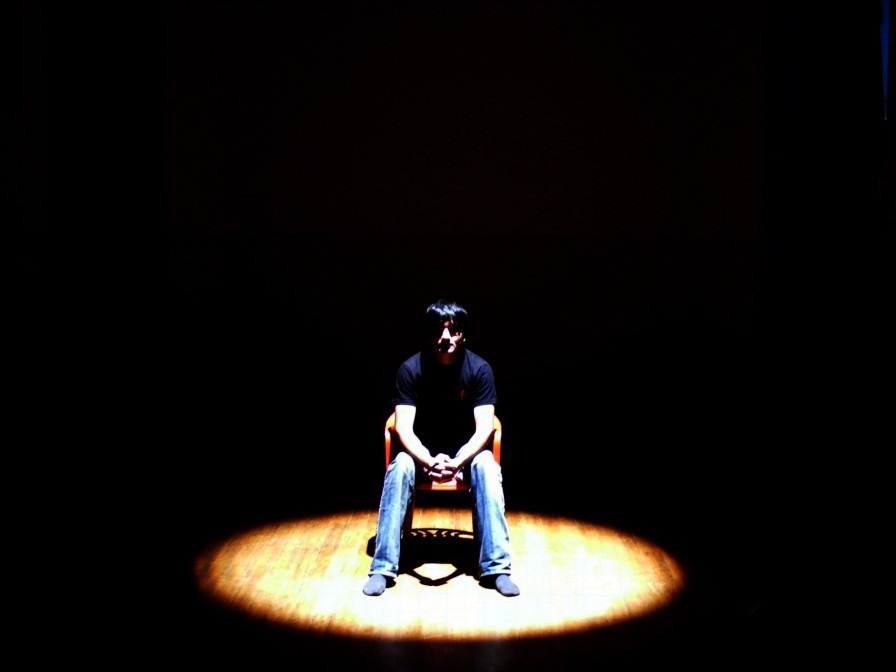Embrace the Spotlight: Understanding and Conquering Performance Anxiety

Embrace the Spotlight: Understanding and Conquering Performance Anxiety
The curtains up - you’re standing in front of a crowd of faces, the spotlight beaming down on you. Your heart races, your palms sweat, and your mind suddenly goes blank.
Performance anxiety, or "stage fright", can leave even the most talented people into feeling incredibly small. It's common to assume that stage fright is simply being nervous, with an expectation that it’ll simply go away with a breath, but there’s a lot more to it than picturing everyone naked.
By learning all about performance anxiety, you can take to the spotlight and deliver your performances with the utmost confidence. Read on, and we’ll explore the causes, its effects, and practical tips to help you overcome this mental barrier.
Understanding Performance Anxiety
Stage fright also referred to as presentation anxiety, or “glossophobia” (the fear of public speaking), is the overwhelming anxiety or fear that arises when speaking or performing in front of an audience. It’s an incredibly prevalent phobia, affecting a significant portion of the population. In fact, estimates indicate that up to 77% of individuals experience anxiety related to public speaking.
According to a 2012 study done by Gordan Goodman, the author of “Stage Fright: Who Needs It?”, a massive 80% of actors have encountered stage fright at least once in their time in the industry, with auditions inducing stage fright almost 20% more than actual on-stage performances. But what’s causing this sudden freeze?
The root causes of performance anxiety can be attributed to various factors:
Fear of judgment: The fear of being negatively judged or evaluated by others plays a considerable role in driving performance anxiety and can be intensified by the desire for acceptance and the weight of meeting high expectations.
Lack of self-confidence: Performance anxiety is often increased by doubts concerning one's abilities and self-worth. Engaging in negative self-talk and fixating on potential mistakes can chip away at confidence until anxiety consumes logical thought.
Perfectionism: The strive for perfectionism, especially in highly competitive industries such as acting, can make the blow of rejection be even more devastating. The weight of wanting to be the best of the best can partner with low self-esteem and snowball into a spiral of worthlessness – especially when constant comparison becomes routine.
The Effects of Performance Anxiety
Symptoms can stem from the activation of the 'fight or flight' response. This automatic reaction prompts the body to engage its sympathetic nervous system, leading to the release of chemicals such as adrenaline and cortisol. Originating as a protective mechanism in ancient times when humans faced real threats from wild animals or adversaries, this response often becomes disproportionately intense in modern-day situations where the perceived danger revolves around potential embarrassment or making a fool of oneself. Performance anxiety can have a huge effect on people, whether that’s their minds or their careers, and manifest into an array of different symptoms:
Emotional distress: The range of emotions triggered by anxiety includes fear, nervousness, irritability, and a sense of helplessness. These emotional responses can further hinder performance and intensify anxiety, creating a challenging cycle to break.
Avoidance behaviour: Avoidance can restrict personal growth and delay individuals from realising their full potential, as they shy away from opportunities that could lead to growth and success. This can lead to isolating yourself with those around you with the same goals and cut ties altogether.
Impaired performance: Performance anxiety can have detrimental effects on concentration, memory, and coordination, ultimately resulting in a dip in performance. Common symptoms such as forgetfulness, trembling hands, voice tremors, or the struggle to maintain composure can drastically impede success and progression in performing.
Conquering Performance Anxiety
While it can feel overwhelming, there ARE strategies to conquer it and help you get back to being confident on stage. Here are some points to try:
Preparation is key: This may seem obvious, but thoroughly prepare and practice your performance. Familiarise yourself with the material, rehearse regularly, and simulate situations to build confidence because the more prepared you are, the more secure you'll feel.
Challenge negative thoughts: Although it may take time, recognising and challenging negative thoughts is an immense step in the right direction to bettering your mindset. Replace self-doubt and catastrophic thinking with positive affirmations and realistic expectations. This way, you can identify and focus on your strengths and past successes to start seeing a clearer path back to the stage.
Breathing and relaxation techniques: there are plenty of resources out there that provide deep breathing exercises, and this has become a staple in stage warmups. Progressive muscle relaxation, and mindfulness techniques can also help calm your mind and body. Practice these techniques regularly to build resilience and manage anxiety during performances.
Visualisation and mental rehearsal: Visualisation is one of the best self-soothing techniques you can do, especially when confidence is low. Picture yourself smashing the performance, nailing the monologue, and singing without any flat notes- a positive mental image that’s fresh before the show can give you the confidence boost you need.
Gradual exposure: Gradually expose yourself to performance situations if you find yourself becoming anxious about large audiences. By starting slow and taking baby steps, increasing who and how many you rehearse in front of, by the time the big night comes around you’ll feel like you’ve done it all before.
Knowing that it’s one of the most prominent obstacles actors face, performance anxiety is simply a barrier– and barriers can be broken. Finding the right individualistic methods that work for you, and routines that you can stick to so you can keep your confidence high will provide great support. Remember that these feelings are perfectly valid, but letting yourself spiral into negative thoughts can be tough to get out of; Seek support from your team, your family, or your teacher because chances are, they’ll know exactly what you’re talking about.

